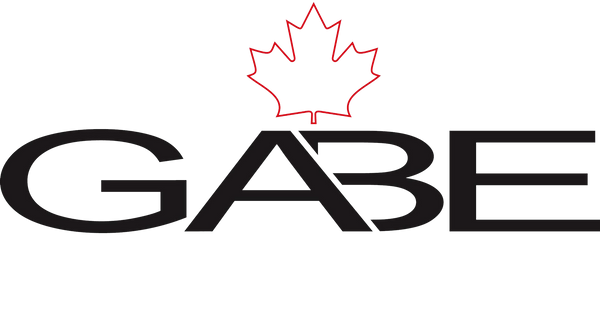
What is Private Label Clothing Manufacturing?
Share
Private Label Clothing Manufacturing offers a unique route for entrepreneurs, retailers, and fashion enthusiasts looking to launch their own clothing lines.
Private label clothing manufacturing (PLCM) enables brands and retailers to design, produce, and sell their own clothes, under their own label.
But what exactly is it? This guide will delve into the intricacies of private label clothing manufacturing, illustrating its benefits, process, and potential for success in the fashion industry.
What is Private Label Clothing?
Private label products are those procured from a third-party manufacturer but retailed under the brand name of the sourcing company. They can be found across a wide array of industries, from clothing and food & beverages to grooming & personal care, and pet supplies. For instance, high-street clothing stores often have their own private label clothing lines, distinct from the branded options they carry.
The appeal of private labeling lies in the fact that the retailer maintains complete control over the product specifications, packaging, and branding. From the consumer's perspective, these are the company's 'own brand' products. Take, for instance, a collaboration software provider venturing into a private label line of conference call hardware. While the products would be manufactured by a different company, they would be sold under the original company's brand name.
The Benefits of Private Labeling
The adoption of private labeling comes with a variety of advantages that can be game-changers for businesses of all sizes. Here are four of the most compelling ones:
- Adaptability: Private labeling offers retailers the ability to respond quickly to market shifts. They can easily communicate modifications to their manufacturer, enabling a faster reaction to changes in customer behavior.
- Control over Production: With private labeling, retailers have more power over production. They can dictate the specifications of a product down to the minute details like color or shape.
- Control over Pricing: By managing the entire supply chain, retailers can control production costs and ensure profitable pricing, ultimately leading to healthier profit margins.
- Control over Branding: With private labeling, the products and their packaging bear the retailer's name, helping to build brand loyalty.
How to Start a Private Label Clothing Line
Venturing into the world of private label clothing requires careful consideration and strategic planning. Here are some key steps to guide you through the process.
Choosing Your Clothing Niche
The first step in launching a private label clothing line is identifying a specific niche. Whether it's sustainable fashion, athleisure wear, or high-end couture, focusing on a niche allows you to cater to a specific market segment. It's crucial to conduct comprehensive market research to understand your potential customers' preferences, needs, and purchasing behavior.
Selecting a Private Label Manufacturer
The next step involves choosing a reliable private label manufacturer. Look for a manufacturing partner with proven experience in your chosen clothing niche, capable of delivering quality products on time. Check their production capacities, quality control processes, and willingness to accommodate your design specifics. Ensure the manufacturer's ethical standards align with your brand's values, as ethical manufacturing is increasingly important to today's consumers.
Design and Branding Strategies
Designing your clothing line involves creating unique pieces that reflect your brand's identity. Invest time in sketching designs, choosing colors, and selecting fabrics that resonate with your target audience. Simultaneously, devise a robust branding strategy. Your brand's logo, packaging, and overall aesthetic should speak volumes about your brand's values, vision, and style. A compelling brand story can help you connect with your audience and foster loyalty.
Successful Private Label Clothing Brands
Numerous private label brands have made their mark on the fashion scene. Brands such as Zara and Uniqlo, known for their quick turnaround and adaptive collections, effectively leverage private label manufacturing. Smaller scale operations like Everlane and Allbirds, too, stand out for their commitment to ethical sourcing and sustainable production. These brands underscore the power of a robust private label strategy that aligns quality, design, and ethical considerations with market demand.
The successes of these private label brands offer a few key lessons. Emphasizing brand uniqueness, understanding your target audience, and remaining adaptable to market changes are central to success. Moreover, integrating ethical considerations into your business model can heighten brand credibility and appeal in today's socially conscious marketplace. These elements, combined with a solid quality assurance process and innovative design, can drive a private label brand to new heights of achievement.
How to Start Private Label Manufacturing
Launching a private label clothing venture is a thrilling endeavor. Here's a detailed guide on how to navigate this journey successfully.
Identify Your Unique Selling Proposition (USP)
Your brand's Unique Selling Proposition (USP) is the cornerstone of your private label manufacturing venture. Your USP can span a wide array of elements — it could be your innovative design approach, a commitment to sustainability, or a focus on a specific fashion niche like plus-size activewear or luxury children's clothing. For instance, if you plan to focus on sustainable fashion, your USP could be eco-friendly materials and ethical manufacturing practices. The key is to offer something distinct that sets your brand apart in the crowded fashion marketplace.
Finding a Reliable Manufacturing Partner
The importance of a reliable and aligned manufacturing partner cannot be overstated. They will be responsible for turning your vision into reality, and their capabilities can significantly impact the success of your brand. Look for a manufacturer with a track record of delivering quality products on time. Verify their production capacities, examine their quality control processes, and assess their ability to accommodate your specific design needs.
Consider ethical and sustainability standards as well. For example, if your brand promotes environmentally-friendly practices, ensure your manufacturing partner shares these values and implements them in their operations. Patagonia, a prominent brand in the outdoor apparel industry, provides an example of this, partnering only with manufacturers that meet their rigorous environmental and social responsibility standards.
Build a Solid Brand Identity
Develop a brand that echoes your values and tells your story. This should extend beyond just clothing and encompass every customer interaction, including your logo, packaging, marketing strategy, and customer service.
Consider the case of Everlane, a private label brand that communicates transparency in its pricing and manufacturing processes. They've successfully built a brand identity centered around this concept, appealing to the growing market of consumers who value ethical production and pricing transparency.
In essence, establishing a private label involves more than just manufacturing unique clothes — it requires strategic thinking, a deep understanding of your target market, and commitment to your brand values.
Wrapping Up
Private labeling presents an intriguing proposition for both online and offline retailers. It offers control over production, pricing, and branding, which can be transformative for a business. However, it also requires taking on the formidable task of competing against established brands and manufacturers.
Private label clothing is not just about creating unique garments; it's about fostering a direct connection with customers, building a distinct brand image, and delivering value. Successful private label brands, from high-street chains to niche boutiques, demonstrate the potential of this approach.
As the industry trends towards more personalized and ethically-produced clothing, the relevance of private label manufacturing is set to grow. Combining this with technological advancements can help brands stay ahead in the competitive fashion market.
Ultimately, the journey into private label clothing manufacturing requires strategic planning, a keen understanding of your target audience, and a commitment to quality. It's a challenge that's ripe with potential for those ready to seize the opportunity.
